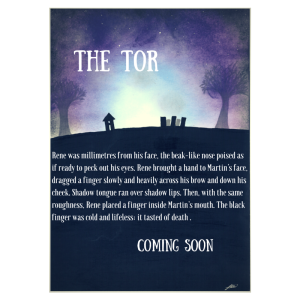In my previous post I wrote a short piece about planning the writing process, and touched upon the importance of good editing. In this article I’ll be looking at the editing process; or more accurately, the first stage of the process.
My degree is in teaching, and my specialism was in English. Whilst studying English comprehension and its application, we considered how to teach and how to assess English comprehension at three levels: text level, word level and sentence level.
At text level you look at whether the child understands the composition as a whole. Can they tell you what kind of text they are reading? What conventions does it hold that make it a part of a particular genre? Can they describe the narrative? Can they follow a character’s arc through the piece? What are the themes?
At sentence level assess whether or not they can understand the meaning of individual sentences, or sometimes paragraphs, in the text. What purpose do those sentences serve? Are they exposition? Do they move the story forward? Do they help you understand a character better? How? Is the information presented baldly, or can you use some inference and deduction to draw out the point the author is making?
Finally, we have word-level comprehension. This is really a test of a reader’s vocabulary. ‘Can you explain what x is?’ ‘How does the author describe the house?’ ‘Why did the author use that particular word?’ ‘What words could you use instead?’
What does all of this have to do with editing a document? Well, the three levels of reading comprehension are reflective of the three levels of editing. At a text level you are looking at how the novel works as a whole. Does the story make sense? Are the character’s arcs in place? Would the information be better presented in a different order, or even a different manner such as an extra scene rather than a flashback or expositional dialogue, for example? In this entry I will be concentrating on text-level editing, as it is the level that should always be tackled first. Here you may find yourself excising chunks of text, or moving and rewriting sections, or writing entirely new ones. Until you’re satisfied with the structure of your novel there’s little point in dealing with the details.
The four sections of The Tor’s narrative take place in consecutive decades with a combination of recurring characters and those who appear only in a single section. These are interspersed with sections that serve to give a broader history of the tor. Aside from these interludes the narrative unfolds without flashbacks or exposition, so this first level of editing required me to ensure that it all made sense; for example by ensuring that no characters find themselves privy to information that it would not make sense for them to know. As I am looking at only the first draft I know there are going to be times where I have given the reader information in a very basic, direct fashion, whereas it would be far more enriching for the narrative if I edit those parts so that, for example, a character within the story discovers or observes the events and experiences the consequences as opposed to having in narrated to them. There are also many sections, in fact far more than I would have expected, in which the old adage ‘show, don’t tell’, has had to be applied. I had expected to remove many unnecessary, repeated, or just hurriedly written parts of The Tor. I also expected many parts to be rewritten. But I’m surprised at how many parts I’ve had to expand upon.
So far it has been interesting and challenging work. The process of critically appraising my own writing has given me a new perspective in my own creative process, and I look forward to finding out how it has changed as a result when I come to edit my next novel.
The Tor is scheduled for release this Autumn via Kindle, Createspace and Smashwords

